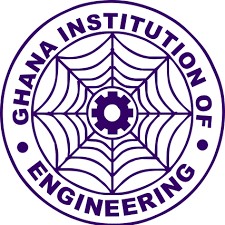Engineers without licence to face prosecution – GhIE
The Ghana Institute of Engineering was founded in 1968 to promote quality engineering practice in Ghana comparable to global standards.

The President of the Ghana Institute of Engineering (GhIE), Ing. Reverend Professor Charles Adams says engineers without professional licensing will, from November 2021, face prosecution under the Engineering Council Act of 2011, Act 819 if found practising.
Ing. Adams said this in an interview with Citi News during the induction of 45 new members and the inauguration of the Western, Western North, and Central Regional Chapter office in Takoradi.
He explained that the licensing measure is to ensure professionalism in engineering to prevent a repeat of recent numerous deadly construction accidents in the country.
“In this country, occasionally you will hear that a building has collapsed, you will hear about people dying from the practices of people who call themselves engineers. Not all these people may necessarily be professional engineers. So under the Act, all that we are saying is we need all persons, whether they are craftsmen, technicians, technologists, or engineers, to append their signature to get a licence to operate in order not to fall foul of the law. Why? Because in this country, starting somewhere in November, if you practice engineering, or you call yourself an engineer without a licence, you can be taken to court and punished.”
“So we are encouraging everyone, whether you are a craftsman, technician, technologist or you have gone to engineering school, and you have been taken through the knowledge of becoming an engineer, you need to find the appropriate licensing body of the Engineering Licensing Council of Ghana, and the Ghana Institute of Engineering is one of them,” he said.
The President of the Ghana Institute of Engineering, however, explained some benefits from getting licensed with a professional body like the Ghana Institute of Engineering.
“We will take you through the process of mentoring and then guide you to become a professional in whatever occupational category of group you belong to. This way, we believe we can minimise unprofessional things like collapsing of buildings and general shoddy works that don’t last,” he added.
The Vice-Chancellor of Takoradi Technical University, Rev. Prof. George Frank Eshun, who hosted the 28th induction ceremony at TTU, said the role of the institute has become rifer due to the recent shoddy works in the country.
Rev. Prof. Eshun, however, said TTU has thus made it compulsory for all engineering students to register with the Ghana Institute of Engineers for certification.
“Your coming to TTU campus and our provision of an office for the 7th Branch means a lot to the students that we are training. So all the engineering students would have to be enrolled in this association, and by the time that they leave Takoradi Technical University, they should be able to pass and be certified members of this association so that they can go and work to serve mother Ghana,” he said.
The Executive Director of the Ghana Institute of Engineering, Ing. David Kwatia Nyante said an unethical professional is a danger to society, hence advised the 45 newly inducted members belonging to the Professional Engineers occupational group of the Institute to be active, understand the ethics of the institute and work with it, as well as mentor others.
Ing. Leslie Alex Ayeh, who is the immediate past President of the Institute, encouraged the new members to become heroes for Ghana’s development.
“Today, you are being given the ammunition to be a partaker in the redemption of Ghana. What is your verdict? Are you going to join the heroes to overcome the challenge?… Stand up and be counted now, for tomorrow would be too late,” he said.
The Ghana Institute of Engineering was founded in 1968 to promote quality engineering practice in Ghana comparable to global standards.
With the 7th Branch opened in Takoradi for Western, Western North, and Central Regions, the Institute says it is determined to enforce quality engineering standards across the country especially in the Sekondi-Takoradi Metropolis, which is the hub of Ghana’s Petroleum Industry.


